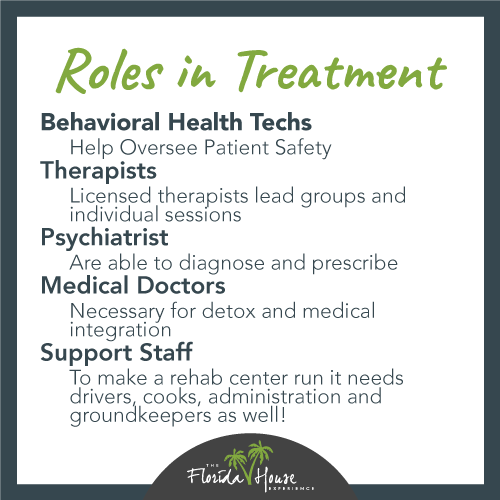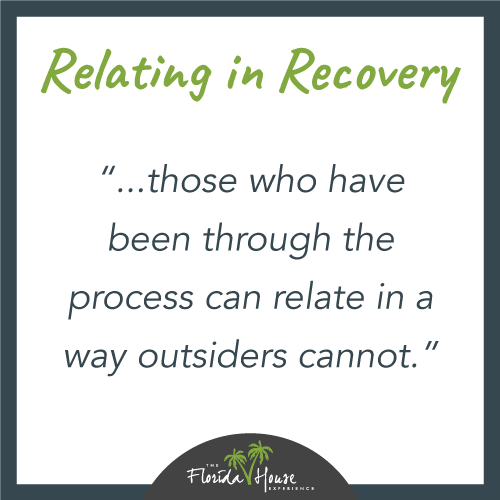
For many who have been through recovery or who watched a loved one on the journey to recovery, staying involved with the community becomes a passion, not just an obligation. After being through it yourself, it’s only natural to want to enter the field and make a difference for others who are where you were.
The addiction recovery industry can be very rewarding, and jobs in the field are often in high demand due to high turnover rates. For those who spent time in recovery or who have criminal records and struggle to find other work, the recovery field is often welcoming. Here’s what you need to know to find a job helping others seek sobriety.
Drug and Alcohol Workers
 Drug and alcohol workers, also known as addiction counselors, addiction technicians or substance misuse workers, are recovery experts who are dedicated to helping substance abusers overcome addiction and live healthy, sober lives. The role of drug and alcohol workers can vary greatly from one rehabilitation center to another but often involves direct work with those in treatment. The actual facets of a job can involve any number of tasks related to the recovery journey, including:
Drug and alcohol workers, also known as addiction counselors, addiction technicians or substance misuse workers, are recovery experts who are dedicated to helping substance abusers overcome addiction and live healthy, sober lives. The role of drug and alcohol workers can vary greatly from one rehabilitation center to another but often involves direct work with those in treatment. The actual facets of a job can involve any number of tasks related to the recovery journey, including:
- Counseling work leading group sessions or speaking one-on-one with program participants about the recovery process. These roles are generally filled by licensed therapists.
- Outreach work, like working with addicts in recovery to find housing, employment or other support, sometimes called ‘Care Coordinators’, or ‘Aftercare Planners’.
- Serving as a law enforcement liaison, discussing options and offering guidance for drug offenders
- Education and training, helping clients to learn the necessary skills to gain employment and live a normal life after treatment. These roles which often maintain safety on the grounds are often called ‘Behavioral Health Technicians’. They are often unlicensed but play an important role in mentoring and talking down patients who become agitated.
- CARAT work in prisons — Counseling, Assessment, Referral, Advice and Thought Care for recovering substance users in prisons, mediating between specialist care and drug abusers.
- Youth work, providing support to teens and young adults struggling with addiction.
Those who have been through detox, inpatient rehabilitation, outpatient rehabilitation and even sober living have a lot to offer individuals just starting the process. In a job as a drug and alcohol worker, it’s possible to map the progression from addiction to sobriety in a way that best makes a difference for others.
These kinds of jobs often have base requirements that include a high school diploma, ongoing sobriety and a driver’s license, making them ideal for those without a substantial academic background, with a short career history or even with a criminal record associated with prior substance abuse.
Other Fields in Addiction Treatment
 For those who would like to be more involved in the care and treatment of substance users, there are other options available. Nurses, psychologists, and psychiatrists all play significant roles in promoting healthy recovery and ongoing abstinence from substances. These kinds of trained professionals are able to play a larger part in creating treatment plans and handling the medical side of addiction.
For those who would like to be more involved in the care and treatment of substance users, there are other options available. Nurses, psychologists, and psychiatrists all play significant roles in promoting healthy recovery and ongoing abstinence from substances. These kinds of trained professionals are able to play a larger part in creating treatment plans and handling the medical side of addiction.
All of these career paths require higher education but can be very rewarding for those willing to consider attending a college or university. Becoming a nurse generally involves a two-year or four-year program, but becoming a CNA or LPN can be less intensive than pursuing an RN degree. Becoming a psychologist often entails a bachelor’s degree followed by at least a master’s degree in psychology. Some programs offer specific degree tracks for addiction medicine. Becoming a psychiatrist or other addiction medicine doctor is the most challenging option, requiring a highly competitive medical school application process, four years of medical school and at least three years in a residency program.
Those who do not want to work directly in a rehabilitation center may choose to consider a career in social work. Addiction social workers advocate for those with substance use disorders. Social work jobs require at least a bachelor’s degree and often a master’s.
Applying for Jobs
Jobs in the recovery industry are largely available in rehabilitation centers, like FHE Health, but may also be an option at hospitals, with social workers or through other medical centers like methadone clinics. For most of these locations, job openings are posted online, but requesting to speak to an HR representative may yield additional possibilities. Be sure you have a resume and cover letter available.
In applying for positions, do not be afraid to reveal your previous experience with substance use disorders. While this goes against conventional wisdom, admitting your past can be an asset in helping you secure a position. Experience with the rehabilitation industry is always desired, and those who have been through the process can relate in a way outsiders cannot.
Working in recovery can be deeply gratifying, especially for those who have been through the process themselves. If you would like a job working in addiction, there are plenty of possibilities available.






